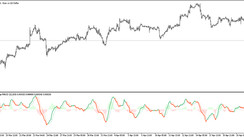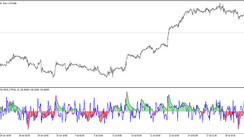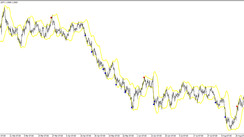National holidays can put traders in a quandary – but they don’t have to.
With careful preparation and planning, a trader may use them to their advantage. FXTM takes a closer look at how.
Holidays and the markets – the basics
The London Stock Exchange acknowledges a total of ten bank and public holidays per annum and the New York Stock Exchange acknowledges nine. The Tokyo Stock Exchange recognises twenty – a huge number by comparison. Depending on both the holiday and the Exchange itself, national holidays usually result in a non-trading day – or at least altered trading hours.
This year, The London Stock Exchange will be closed completely for every holiday, with the exception of Christmas Eve and New Year’s Eve which will shut from 12.30pm GMT. While this can still cause concern and perhaps even frustration for keen stock traders, it is more complicated for those trading forex, spot metals and CFDs.
As the forex market follows a schedule of 24 hours a day, 5 days a week, trading is rarely completely closed.
In contrast, schedules are usually adjusted more frequently for spot commodities and indices, CFDs and spot metals which means that even more preparation is required to ensure investors protect their capital adequately.
Leading brokers such as FXTM heartily encourage their clients to keep a close eye on economic calendars at all times in order to prevent any last-minute confusion or panic.
Trading on those special days
On the day of a holiday itself, there are a few reasons that traders feel discouraged from entering the markets.
Firstly, US and UK bank holidays usually experience a reduction in trading volume, which in turn results in less liquidity. This decrease impacts a variety of factors, but primarily affects the speed at which one can open and close positions.
Execution speed is, of course, massively important to investors – so it is easy at first to see why this would be a deterrent. Low liquidity can also cause both static and volatile markets, as well as higher spreads caused by fewer market participants.
However, the effects of these changes will differ depending on each investor’s individual trading style. Low trading volume can make it more challenging to distinguish and follow trends, which means that day traders and swing traders will likely need to adjust their strategy.
On the other hand, traders who prefer long-term positions may be better positioned to ride out market volatility and often find that they can continue to trade over the holidays in relative normality.
The Pre-Holiday Effect
The ‘Pre-Holiday Effect’ is a market anomaly which takes place – you’ve guessed it – before the holiday itself. Historical research has revealed that market prices have a tendency to behave in specific ways in the 48 hours preceding holidays, with market return demonstrating a noticeable increase.
Interestingly, the stock market return can actually reach highs of more than ten times the average on a regular trading day. With careful preparation, both short and long-term investors can potentially benefit from this.
The reasons for this are pretty obvious. Most people enjoy the holidays and look forward to relaxing with friends and family. Traders may well be feeling more optimistic, and therefore more likely to trade with confidence – perhaps even taking more positive positions than usual.
An experienced investor will adapt his strategy to take this buoyancy into account and potentially profit from it.
However, it is of paramount importance to remember to remove your own emotions from the equation, difficult as that may be. While it is speculated that the markets will react in a certain manner, this is never 100% certain. You would be wise to avoid reacting with overconfidence yourself, as this is a sure-fire way to lose your hard-earned capital.
Positive sentiment can continue
Market sentiment can often remain positive after and even between holidays. CNBC reported that during the Thanksgiving and Christmas holidays in the year 1990, the Dow Jones averaged a rise of 1.93 percent and the Russell 2000 a gain of 2.46 percent. Meanwhile, the S&P 500 has been positive 78% of the time during this seasonal period since 1990.
While national holidays can produce price spikes, volatility and other anomalies, investors can prepare for these trends and factor them into their strategies – potentially to their benefit! It takes some forward-planning and, of course, communication with their broker to ensure they are well aware of any upcoming schedule change.
However, a wise trader will remember two core principles of safe investment: never risk more capital then you are prepared to lose, and that past performance certainly does not guarantee future positive results.
Ready to start your trading journey? Trade with an award-winning broker and open your FXTM account today .
About the Author

FXTM
FXTM is a fully-regulated, global-award winning forex broker that offers exceptional trading conditions, superior education and state-of-the art trading tools and platforms. The ethos of FXTM is captured perfectly by its slogan: ‘time is money, invest it wisely’, as the company places great emphasis on encouraging their clients to make informed and effective trading decisions. Visit FXTM website to explore more.
Disclaimer: This written/visual material is comprised of personal opinions and ideas. The content should not be construed as containing any type of investment advice and/or a solicitation for any transactions. It does not imply an obligation to purchase investment services, nor does it guarantee or predict future performance. FXTM, its affiliates, agents, directors, officers or employees do not guarantee the accuracy, validity, timeliness or completeness of any information or data made available and assume no liability for any loss arising from any investment based on the same.
Risk Warning: There is a high level of risk involved with trading leveraged products such as forex and CFDs. CFDs are complex instruments and come with a high risk of losing money rapidly due to leverage. 90% of retail investor accounts lose money when trading CFDs with this provider. You should consider whether you understand how CFDs work and whether you can afford to take the high risk of losing your money.
NOTES TO EDITORS
The FXTM brand provides international brokerage services and gives access to the global currency markets, offering trading in forex, precious metals, Share CFDs, and CFDs on Commodity Futures. Trading is available via the MT4 and MT5 platforms with spreads starting from just 1.3 on Standard trading accounts and from 0.1 on ECN trading accounts. Trading on the MT5 platform is not available for Forextime UK Limited. Bespoke trading support and services are provided based on each client’s needs and ambitions - from novices, to experienced traders and institutional investors. ForexTime Limited is regulated by the Cyprus Securities and Exchange Commission (CySEC), with licence number 185/12 and licensed by the SA FSCA with FSP number 46614. Forextime UK Limited is authorised and regulated by the Financial Conduct Authority, firm reference number 777911. Exinity Limited (www.forextime.com) is regulated by the Financial Services Commission of the Republic of Mauritius with an Investment Dealer License bearing license number C113012295.





